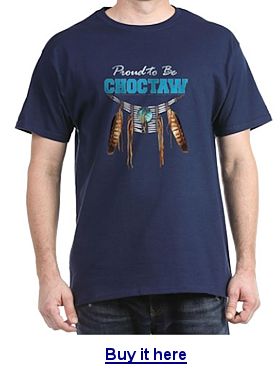The Mississippi Band of Choctaw Indians was native to the Southeastern United States and members of the Muskogean linguistic family, which traces its roots to a mound-building, maize-based society that flourished in the Mississippi River Valley for more than a thousand years before European contact.
Although their first encounter with Europeans ended in a bloody battle with Hernando de Soto’s fortune-hunting expedition in 1540, the Choctaw would come to embrace European traders who arrived in their homeland nearly two centuries later. Following the Revolutionary War, many Choctaw had already intermarried, converted to Christianity and adopted other white customs.
The Choctaw became known as one of America’s Five Civilized Tribes, which also included the Chickasaw, Cherokee, Creek and Seminole.
Official Tribal Name: Mississippi Band of Choctaw Indians
Address:
Phone:
Fax:
Email:
Official Website:
Recognition Status: Federally Recognized
Traditional Name / Traditional Meaning:
Chahta – The name of a legendary chief
Common Name / Meaning of Common Name:
Choctaw – From ChahAlternate spellings / Misspellings:ta
Alternate names / Alternate Spellings / Misspellings:
Five Civilized Tribes, Chactaw, Chaktaw, Chatha
Name in other languages:
Region: Southeastern
State(s) Today: Mississippi
Traditional Territory: Mississippi River Valley
Confederacy: Five Civilized Tribes, Muskogean
Treaties:
The Choctaw signed nine treaties with the United States before the Civil War, beginning with the Treaty of Hopewell in 1786 – which set boundaries and established universal peace between the two nations. Subsequent treaties, however, reshaped those borders and forced the Choctaw to cede millions of acres of land. In 1830, the United States seized the last of the Choctaw’s ancestral territory and relocated the tribe to Indian Territory west of the Mississippi
Reservation: Mississippi Choctaw Reservation
Land Area:
Tribal Headquarters:
Time Zone:
Population at Contact:
Registered Population Today:
Tribal Enrollment Requirements:
Genealogy Resources:
Black Choctaws adopted through the Dawes Commission
Government:
Charter:
Name of Governing Body:
Number of Council members:
Dates of Constitutional amendments:
Number of Executive Officers:
Elections:
Language Classification:
Language Dialects:
Number of fluent Speakers:
Dictionary:
The Books of Genesis, Exodus, Leviticus, Numbers, and Deuteronomy, Translated into Choktaw Language
Origins:
Bands, Gens, and Clans
The Choctaw like all of the Muscogean tribes was a matriarchal and clan culture. There were two distinct Moieties: Imoklashas (elders) and Inhulalatas (youth). Each moiety had several clans or Iskas, it is estimated there were about 12 Iskas altogether. Identity was established first by Moiety and Iska, so a Choctaw identified himself first as Imoklasha or Inhulata and second as Choctaw.TheChoctaw clans include the Wind, Bear, Deer, Wolf, Panther, Holly Leaf, Bird, Raccoon and Crawfish Clans.
Related Tribes:
Choctaw Nation of Oklahoma, Jena Band of Choctaw, Mississippi Band of Choctaw Indians, Texas Band of Choctaw Indians (Yowani Choctaw), MOWA Band of Choctaw Indians, Mount Tabor Indian Community
Traditional Allies:
The Choctaw were early allies of the French, Spanish and British during the 18th century.
Traditional Enemies:
In the 1750’s the tribe was involved in a Civil War that decimated whole villages. The division was driven by factions affiliated with the Spanish and the other the French. In the 18th century the Choctaw were generally at war with the Creeks or the Chickasaw Indians.
Ceremonies / Dances / Games:
Modern Day Events & Tourism:
Choctaw Legends / Oral Stories:
Art & Crafts:
Animals:
Clothing:
Housing:
Subsistance:
Economy Today:
Religion & Spiritual Beliefs:
Burial Customs:
Wedding Customs
Education:
Radio:
Newspapers:
Choctaw Chiefs and Leaders:
Pisatuntema –
Catastrophic Events:
Tribe History:
During World War I and II, the U.S. Military used members of the Choctaw Nation for secure communications. They became the first code-talkers.
In the News:
Further Reading:
